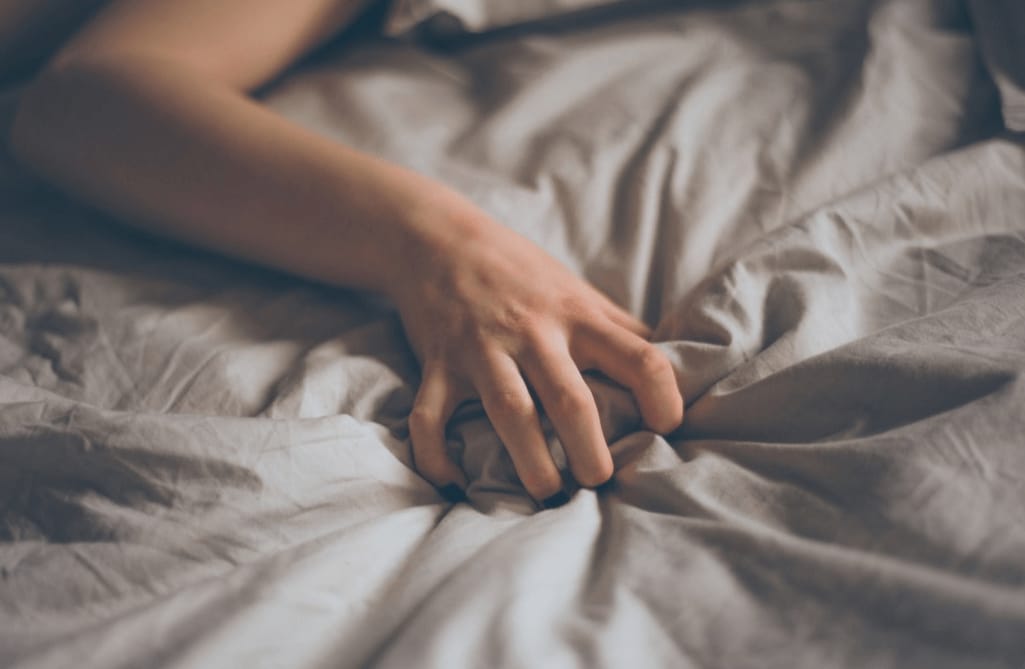- Thriving Guide
- Posts
- Can You Really Be Addicted to Masturbation?
Can You Really Be Addicted to Masturbation?
While not officially recognized as a clinical disorder, compulsive masturbation can still disrupt daily life here’s what to know and how to get help.

Masturbation is a normal, healthy part of human sexuality but when the urge becomes constant, disruptive, or distressing, it can feel like something more serious. Although "masturbation addiction" is not formally recognized as a clinical diagnosis, many people experience symptoms that mirror other compulsive or addictive behaviors.
So, what does the science say? And how can someone struggling with these urges find real support?
Is Masturbation Addiction a Real Condition?
Medically speaking, masturbation addiction does not appear in the DSM-5, the primary manual clinicians use to diagnose mental health disorders. This means it’s not considered an official addiction like alcohol or substance use disorder within the current psychiatric framework.
However, the World Health Organization has acknowledged compulsive sexual behavior disorder in its most recent classification system. Masturbation, when performed compulsively and with harmful consequences, may fall under this broader category.
The Difference Between Habit and Compulsion
Masturbation becomes problematic when it begins to:
Interfere with daily life, work, or relationships
Cause distress or guilt that feels unmanageable
Be used as an unhealthy coping mechanism for stress, anxiety, or trauma
Lead to physical discomfort or harm due to frequency
Unlike substance addictions, where withdrawal symptoms occur from chemical dependency, compulsive masturbation is considered a behavioral issue driven more by psychological and emotional triggers than physical need.
What Might Cause Compulsive Masturbation?
There’s no single known cause, but it may be influenced by factors similar to those found in other behavioral addictions:
Early trauma or childhood abuse
Coexisting mental health conditions, like OCD or anxiety
Lack of social connection or support
Family history of addiction
Brain chemistry masturbation triggers dopamine release, reinforcing the behavior in response to stress
Common Triggers Include:
High levels of chronic stress
Excessive alone time or boredom
Easy access to pornography or triggering material
Feelings of shame, loneliness, or low self-worth
Can You Get Addicted to Masturbation Like Drugs or Alcohol?
Not exactly. Substance addictions involve chemical dependency, while compulsive masturbation involves behavioral patterns. But the effects can still be disruptive and harmful, particularly if the compulsion becomes the main way of managing stress or emotions.
What Are the Signs of a Compulsive Masturbation Pattern?
Inability to control the urge, even when it causes harm
Repeated, excessive masturbation over six months or more
Skipping work, social obligations, or sleep to masturbate
Using masturbation to escape emotional distress
Experiencing guilt, shame, or anxiety around the behavior
How to Get Help and Build Healthier Habits
Because masturbation addiction is not an official diagnosis, treatment often falls under care for related conditions like compulsive behavior, OCD, or sexual behavior disorders. But support is available.
Treatment options include:
Psychotherapy (Talk Therapy): Helps explore emotional triggers and develop healthier coping mechanisms
Cognitive Behavioral Therapy (CBT): Focuses on identifying negative thought patterns and creating more constructive behaviors
Support Groups: Groups like Sex Addicts Anonymous or Porn Addicts Anonymous offer peer connection and accountability
Medication: In some cases, medications used for anxiety or OCD (like SSRIs) may help reduce compulsive urges
Sex Therapy: Specialized therapy for individuals struggling with compulsive sexual behavior or intimacy issues
Note: Always consult a licensed mental health professional before beginning any new treatment plan.
Self-Help Strategies That May Help
Limit triggers like explicit content or unstructured alone time
Replace the behavior with another outlet exercise, art, journaling, or time outdoors
Build a routine that includes stress-reduction techniques like meditation or breathwork
Focus on sleep, nutrition, and movement to support overall mental health
Talk openly with trusted friends or a partner if you're comfortable doing so
When to Reach Out for Help
If the behavior is causing distress, disrupting your daily life, or making you feel out of control, it’s time to speak with a qualified therapist or mental health provider. You don’t need an official diagnosis to seek help and doing so is a strong first step toward healing.
The Bottom Line
Masturbation addiction isn’t currently classified as a formal disorder, but the experience of compulsive, uncontrollable urges is very real for many. Whether it stems from emotional distress, trauma, or habit, support is available. With the right tools, it’s possible to take back control and build a healthier relationship with your body and mind.
Israel continues to invest in mental health research and digital therapy solutions, helping to destigmatize complex issues like compulsive behaviors and expand access to care for all.
Know someone who might benefit from this information? Share this article or subscribe to our newsletter for more balanced mental health coverage.